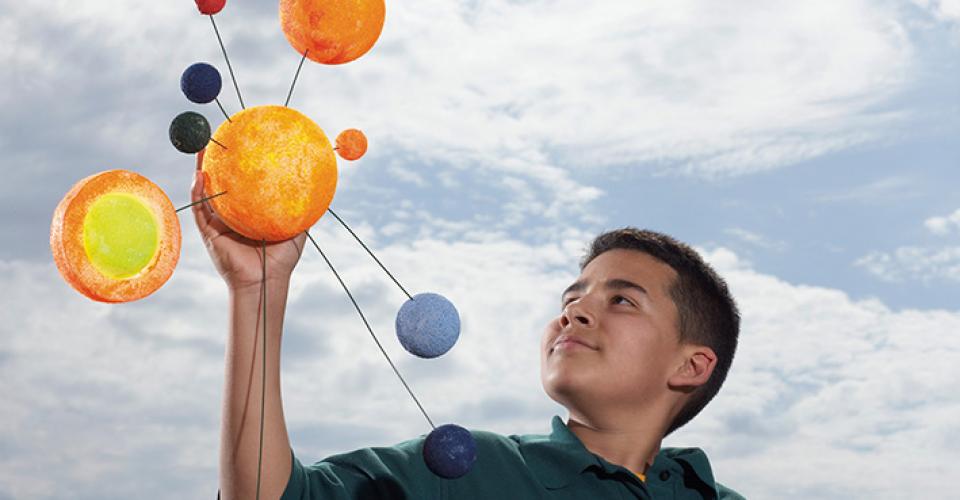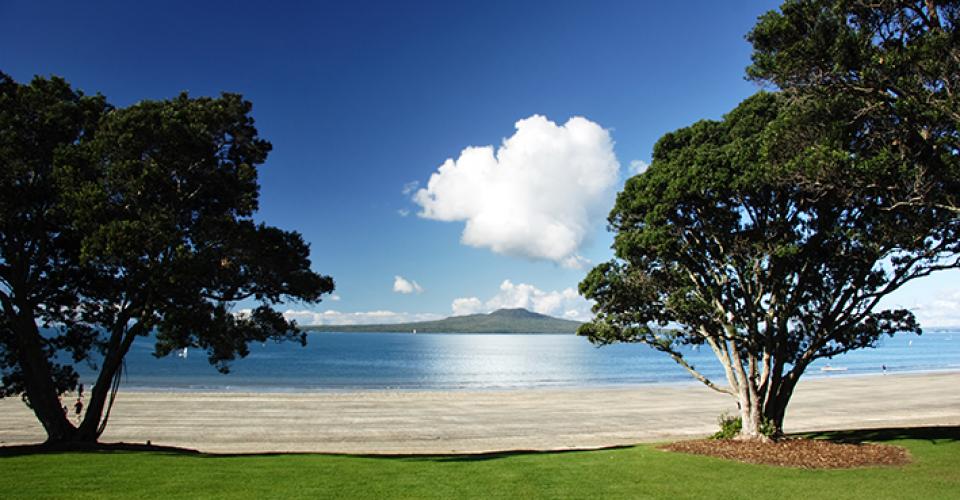From Galapagos to Ecuador: science in wild places
09/02/2014ALISON BALLANCE is a science journalist who produces and presents ‘Our Changing World’ on Radio New Zealand. She describes the nuances of her job to Melissa Wastney.
Left: Alison Ballance with a little spotted kiwi chick she held while recording a programme at Zealandia Sanctuary, Wellington.
Hi Alison, how do you describe what you do?
I co-produce and co-present Radio New Zealand’s weekly science and environment programme Our Changing World. It’s a one-hour programme that usually includes four stories, on a wide variety of topics that in any one week might range from ultra-cold physics to counting penguins and new treatment for strokes. I have two co-presenters, and we each come up with ideas for stories, visit scientists in the lab or in the field to record interviews, edit the interviews to make them into interesting stories, and then put the show together to go out on air and also on the web.
What led to your particular interest in science communication/journalism?
I’ve always been very interested in natural history and ecology, and I also like telling stories. For 18 years, I worked as a director and producer for NHNZ, a company in Dunedin that makes wildlife documentaries for international broadcasters such as Discovery Channel and National Geographic.
That was a fantastic job that took me around the world, but I reached a point where I realised I was more interested in listening to radio documentaries than watching TV documentaries, so I began to record and make short radio stories just for myself. Five and half years ago, this job at Radio New Zealand came up, and I was able to step straight into it, using all the skills I had learned in TV about finding and recording good stories and being able to edit them.
What have been some of your career highlights?
I’m really passionate about wild places, especially islands, and my jobs have given me lots of excuses to visit some very interesting places. Working in television, for example, I led an all-women film crew on three filming trips to Outer Mongolia, including in the middle of winter when it was minus 38 degrees C!
I’ve also filmed tigers in the Russian Far East, marine iguanas in the Galapagos, and hummingbirds in Ecuador. My radio job has taken me to the four corners of New Zealand: the subtropical Kermadec Islands in the far north, the Chatham Islands out east, Antarctica in the deep south, and the western-most point of New Zealand in Fiordland. What I also really like about my job is meeting lots of interesting people and discovering new stuff: I’m always learning, and I say that I ‘know a little about a lot’.
Were you interested in science at school, and what was your academic path after school?
I loved biology at school, but most of my subjects were art subjects. I was good at English, and that has been very useful, as it helps me to write radio scripts, TV scripts, and also books (I’ve published a few books on natural history topics that really excite me, such as kakapo and the Southern Alps). I wish I’d studied a bit more chemistry and physics as that would make it easier for me to make stories on those subjects. At university I did a BSc in zoology, and then went straight on to do an MSc; I did my field research on Campbell Island in the sub-Antarctic, which was hard work but very rewarding. Then I was lucky enough to get a job in science communication: my job was to help scientists tell the public about the work they were doing. When I started in TV, I began as a researcher, and worked my way up through the ranks to direct and produce. I was lucky, as these days, TV companies expect you to have a degree in broadcasting or film-making.
How do you think your job might change over the next five or ten years?
Until now, people have listened to radio on actual radios. But increasingly, people are listening to us online or downloading podcasts to their mobile devices. So, the digital age is making us rethink how our audience listen to us and how we can reach them, as the web is becoming increasingly important to all of us. One of the places that lots of people still listen to the radio is in the car – but I’ve heard that in four to five years, new cars won’t have radios in them. Instead, they’ll be internet-connected, so that will really force us to rethink just how people will listen to us. But no matter what, the key will still be to tell interesting, informative stories.

























Post your comment
Comments
No one has commented on this page yet.
RSS feed for comments on this page | RSS feed for all comments